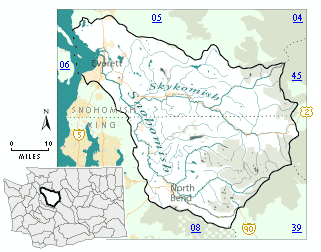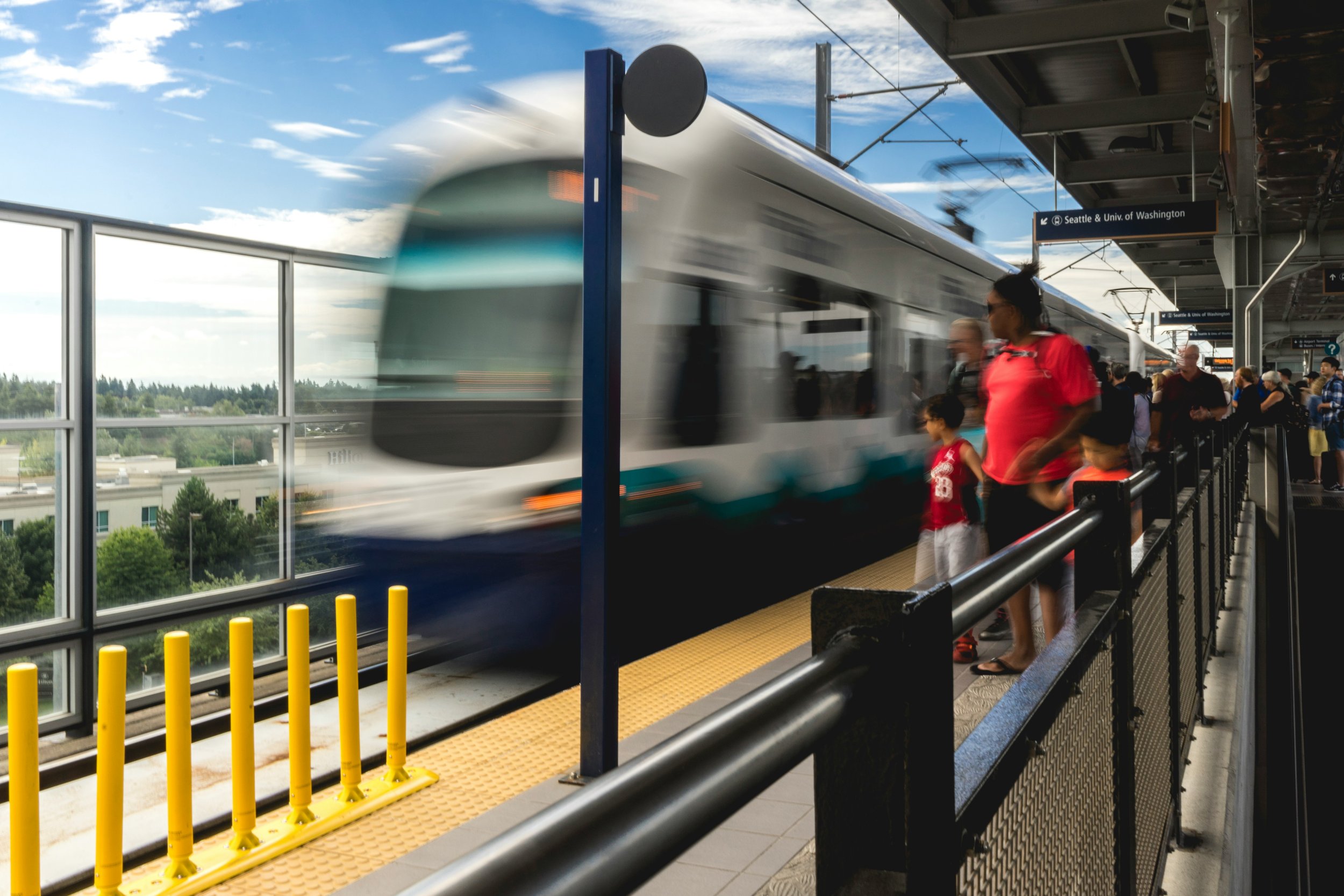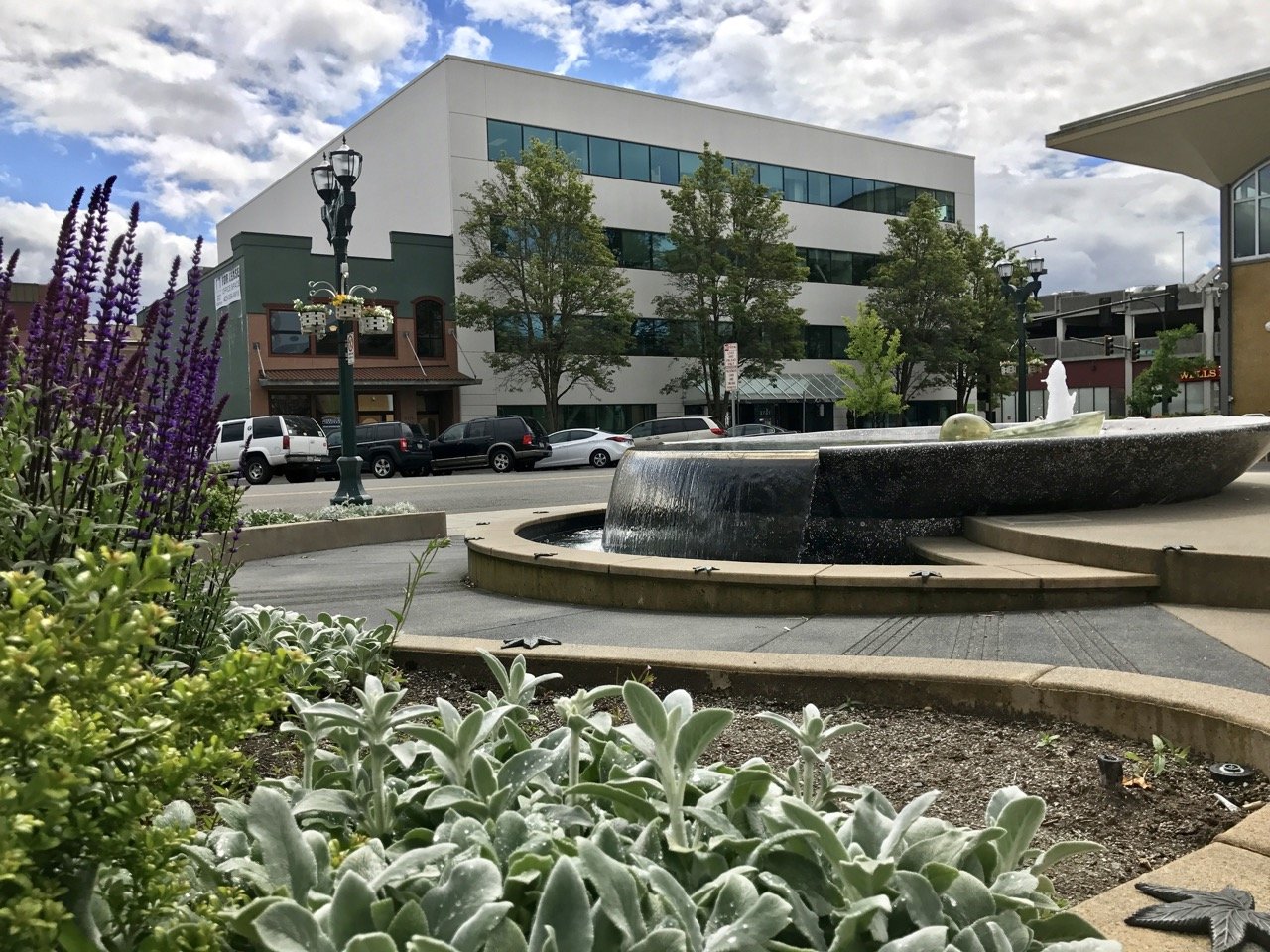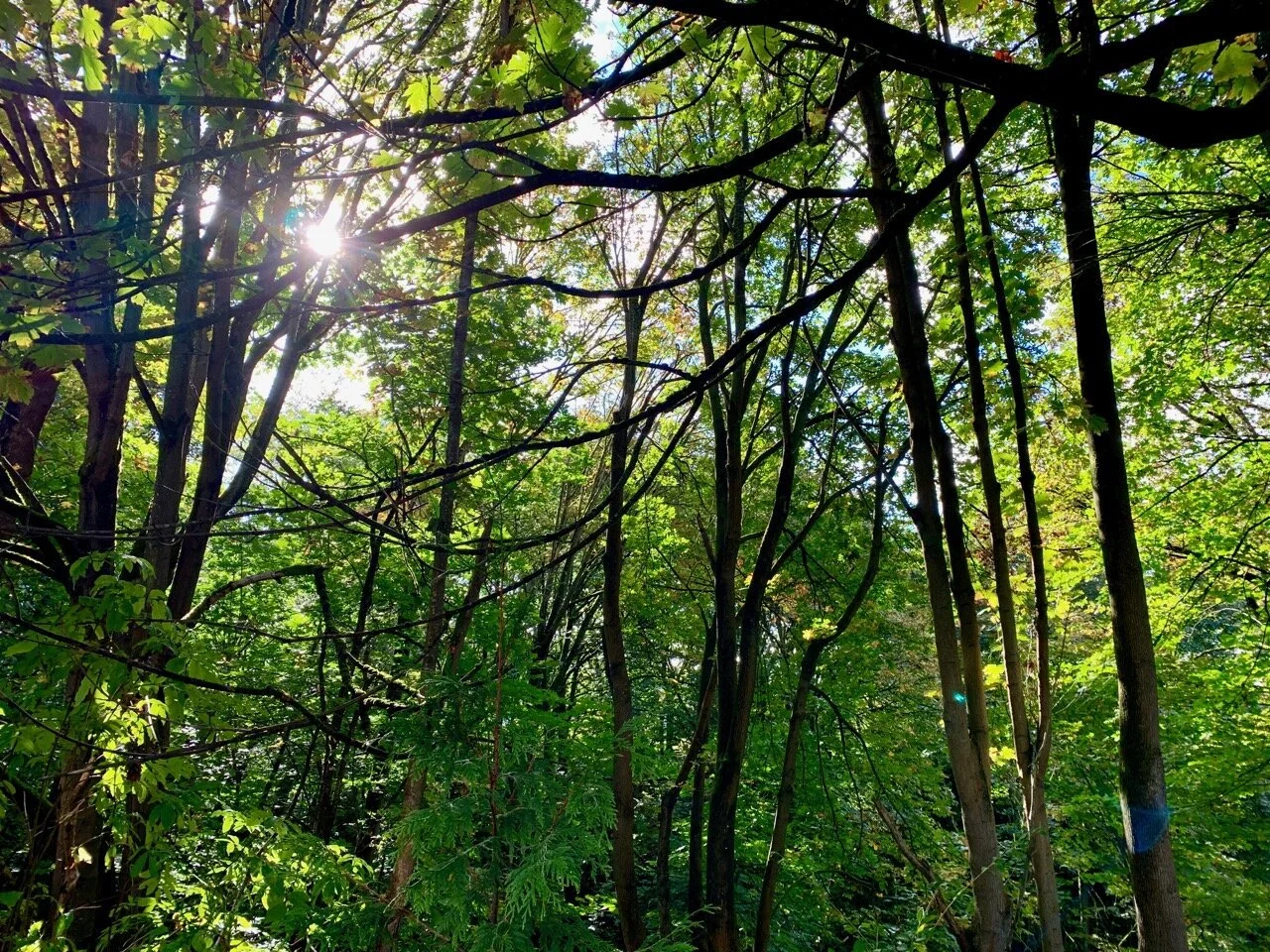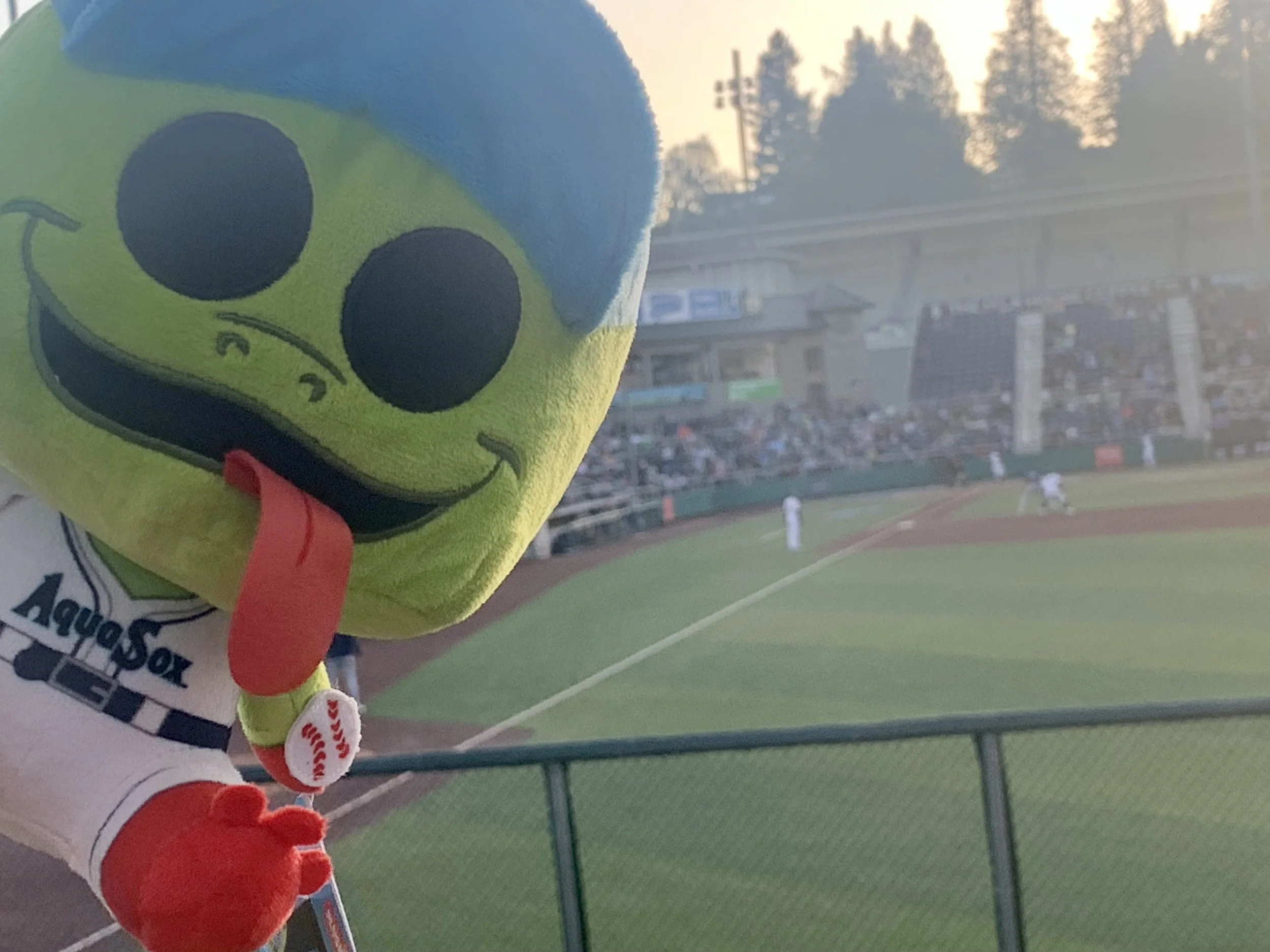The Way Forward: Everett as a Resilient Micro Society
I planted four semi-dwarf fruit trees in my yard. Two apple trees, two pear.
A neighbor walked by as I was mulching them for winter.
“What are you planting?” she asked.
I told her.
“Ha! I’ll be back in five years!” she said.
I respect this woman’s comment. She gets it.
Unlike so many things in our fast-paced society, there’s no way to speed up the growth of a tree. It requires patience, know-how (pruning and grafting, anyone?), and labor in the form of mulching and harvest.
Being an orchardist, even an amateur one, requires a long-view perspective.
This was something that our forebears on this peninsula knew inherently. Have you seen how many fruit trees adorn our residential neighborhoods?
How much of that fruit is eaten today? How much of it rots on the ground?
Growing food in urban contexts was once a common sight, particularly during times of war in an effort to provide food security. This was also in keeping with the early 20th Century American ideals of physical activity and thrift. Source: sidewalk sprouts.wordpress.com.
I think about the future a lot. More so since I’ve had children. Even more so since I bought a home with a thirty-year mortgage.
I’m planning to “dig in” and stay in Everett for the indefinite future. What can I expect?
I can’t turn a blind eye to the fact that most experts estimate that Peak Oil will strike sometime within the next few decades. After Peak Oil society will most likely constrict. Some will be able to afford gas prices or electric vehicles. Many will probably be forced to resort to “old-fashioned” modes of transportation—walking, biking, and even boat travel. Long-distance food routes will dry up.
What will all of this entail for myself and my community? What will this mean for my children? What does it mean to live in this place at this time? How does one do so ethically? What can history teach us about how to relate to our surroundings?
EVERETT’S PAST
Everett’s history and unique location provide an advantage in a post-oil world. Consider the following.
Proximity to Water
Our city is predicated on its closeness to water.
Water floats lumber. Water floats boats.
A hundred years ago so-called “mosquito fleets” were small ferries commonly used to connect passengers from Everett to other waterfront cities like Seattle and Tacoma.
Unlike so many cities, North Everett is not solely based on the automobile. This as opposed to sprawling suburban “commuter” communities that sprung up across the country during the 20th Century.
The Snohomish River Watershed. As you can see, it encompasses areas in both Snohomish and King Counties. Political boundaries (often demarcated in straight lines on maps) have often been drawn in disregard of natural ecosystems. This concept could change drastically within our lifetimes. Source: Washington State Dept. of Ecology.
The Snohomish River was a primary avenue of travel. Rivers were navigated by dugout canoe or paddleboat. Log booms were floated downstream. Prior to the advent of I-5, the Lowell and Lower Riverside neighborhoods were thriving centers of commerce because rivers were roads.
In a post-oil world it’s feasible that boat travel will once again become commonplace.
Moreover, the Snohomish River could truly save our bacon in terms of energy production. Turbines at the mouth of the river could generate virtually endless energy by harnessing the power of the tidal currents.
Pre-automobile Infrastructure
Most of the infrastructure in North Everett was built before the advent of the automobile. The city was built with an emphasis on walkability. Early residents could use streetcars for a nominal fee (5 cents according to one source) with trollies connecting neighborhoods throughout the peninsula.
Early photographs of the city show that bicycle travel was a common mode of transportation.
All of this is to our benefit. Outlying rural communities will struggle with transportation options when conventional gas-based vehicles become obsolete.
A postcard depicting boats in the "mosquito fleet," harbored in Seattle circa 1912. The large steamboat toward the center of the image reads "Stop Over in Everett." Source: Wikipedia.
EVERETT’S FUTURE
Let’s go back to the pear tree.
In the long view of history the 20th and early 21st Centuries will appear as an anomaly—a period of largely unregulated growth fueled by artificially cheap energy.
What will life look like in our micro society after Peak Oil? How can we prepare even now to strengthen our community and build resilience?
Again, I believe we are already at an advantage based on key factors.
Size
The natural geographical boundaries of our peninsula have created a unique place: a dense, self-contained micro society. Anyone who has lived here for any amount of time knows that North Everett is an insular community where you get to know a lot of people quickly.
Everett exists and operates on a scale that lends itself to easy organization and cooperation. Indeed, we have many networks functioning now that work to serve the greater good (neighborhood associations, churches, social and professional networks, food banks, neighbors looking out for each other).
Cooperation and organization will be key if society becomes decentralized and we're left to rally local resources.
Temperate Maritime Climate
I believe North Everett is at a geographic advantage, even as climate change transforms the globe. Our maritime microclimate is regulated by the ocean. Our peninsular location ensures that we get ample moisture in the form of fog and dew (anyone who has mold or mildew in their less-than-hermetically-sealed homes can attest to the omnipresence of atmospheric water). This is a boon in the coming era of water shortages and resultant irrigation difficulty.
The sea also helps to regulate temperature, creating a mild, temperate area with decent rainfall.
In other words, crops are easy to grow here. Food grown in Everett has an advantage to places in drought-stricken areas where water has to be piped in from outside sources.
Nootka Rose (Rosa nutkana), a Pacific Northwest native shrub. The rose hips are edible, and can be found near the Everett waterfront in fall and early winter. Source: wildfoodsandmedicines.com.
Foraging/Farming/Fishing Options
There are wild areas (postindustrial, but still) on the fringes of the peninsula, places where the shrewd forager can haul in a bounty.
In fact, I’ve done it myself. I’ve picked blackberries off Marine View Drive, harvested rose hips at Pigeon Creek. Crabbing will become a feasible option as well as any fish that can be caught in our waters. A knowledge of local plant life will be helpful—it’s possible that groups of citizens will harvest cattails at Langus and Lowell.
Neighborhoods with community gardens and p-patches (like Bayside and Delta) will be at an advantage, having designated spots already in which to grow food.
It’s foreseeable that local neighborhood markets will again thrive—this time as hubs of trade.
Everett Mayor Robert Anderson rides a bicycle to speak with constituents in 1977. The 1970s saw a resurgence in bicycle travel as the U.S. grappled with an oil shortage and a rising consciousness in regards to environmental impact. Today Everett's compact streets make bicycle transportation easy. Source: Northwest History Room, Everett Public Library.
Transportation
In the wake of Peak Oil abandoned and low-traffic motorways will be filled with bicycle travel. A functioning bioregion would most likely entail bicycle trade routes between Everett and Bellingham, Everett and Seattle.
Hipsters rejoice—there will be no choice but to eat local. Kiss your bananas and avocados goodbye.
THE WAY FORWARD
Paradoxically, the way forward in the late 21st Century may be a return to our roots.
Luckily, in North Everett we are at an advantage. When the world hits the reset button we’ll be here, in a damp area with water avenues available, in a walkable and bikeable place. A place with a small, insular society on a scale that lends itself to easy cooperation and organization in the face of crisis.
The long view of the future was something that was inherent to native societies that predated the European settlement of Everett.
I think about all of this as I mulch my fruit trees.
I think about this as I watch my daughters learn to ride bicycles.
To go forward we must keep an eye on what’s behind us.
Richard Porter is a writer for Live in Everett.


